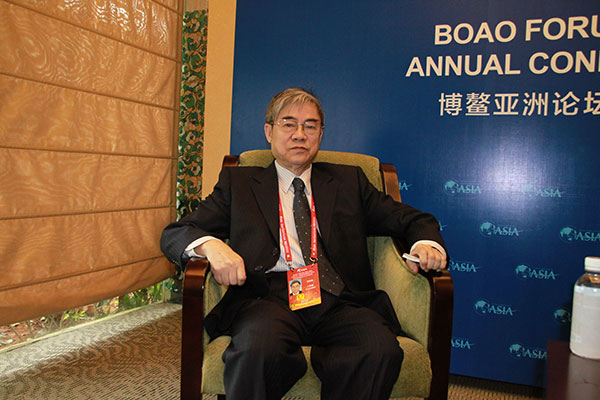Telecom engineer criticizes Qualcomm for overcharging
- By He Shan
 0 Comment(s)
0 Comment(s) Print
Print E-mail China.org.cn, April 10, 2014
E-mail China.org.cn, April 10, 2014
|
|
|
Wu Hequan, a top telecoms engineer in China. [By He Shan / China.org.cn] |
Top Chinese telecom engineer Wu Hequan has backed up claims of overcharging by U.S. mobile chipmaker Qualcomm, which is facing an anti-monopoly investigation by the National Development and Reform Commission (NDRC), China's regulatory authority.
Wu said Qualcomm charges discriminatory fees for cell-phone chips used in handsets made by Chinese manufacturers in China.
On Feb. 19, the NDRC announced that it was launching an investigation into Qualcomm's possible malpractice after it received complaints accusing the San Diego-based company of overcharging and abusing its market position.
Wu Hequan said Qualcomm charges handset manufacturers differing royalty rates, or patent licensing fees, which usually range from 1 to 6 percent of the wholesale price of a handset. But he added that Qualcomm charges China at the higher end of the range, as high as 5 percent, much higher than South Korea.
"The fee is unreasonable," he said. "The price includes the cost of any ornaments installed on the handset, even including a diamond."
The chipmaker has also come under fire from regulators including in South Korea who fined the company US$252 million for abusing its dominant position producing CDMA chips which are used in handsets made by Samsung Electronics and LG Electronics.
"Due to Qualcomm's market position, Chinese manufacturers have no choice but to accept its excessive loyalty fee to obtain its chips," Wu said.
In fact, the share of the chip price in the cost of each mobile device has continued to decline, but Qualcomm's fee is a big headache for manufacturers who are struggling to cut costs.
"The Chinese market is so big that Qualcomm can't afford to lose out in it," the?engineer said. Its revenues in China rose to US$12.3 billion in 2013 from US$4.7 billion in 2011, or nearly half the company's total revenue.
Wu said up to 30 percent of the company's revenues came from its loyalty fee.
"China respects intellectual property rights, but charging too much for patents is unacceptable," he said.
"Compared to patent-holders Nokia and Ericsson, who charge royalty rates of between 1 percent and 2 percent, Qualcomm charges much more," he said. "In this respect, the NDRC has a reason to probe them."
Despite the fact that NDRC may impose a high fine after the verdict of the investigation is given, the world's largest mobile chipset developer is expected to benefit significantly from China's 4G transition.
Qualcomm is positioned to rake in the vast majority of the licensing fees for the chips that support a handset using both 3G and 4G in China, providing the chipmaker with a fresh source of royalties.






